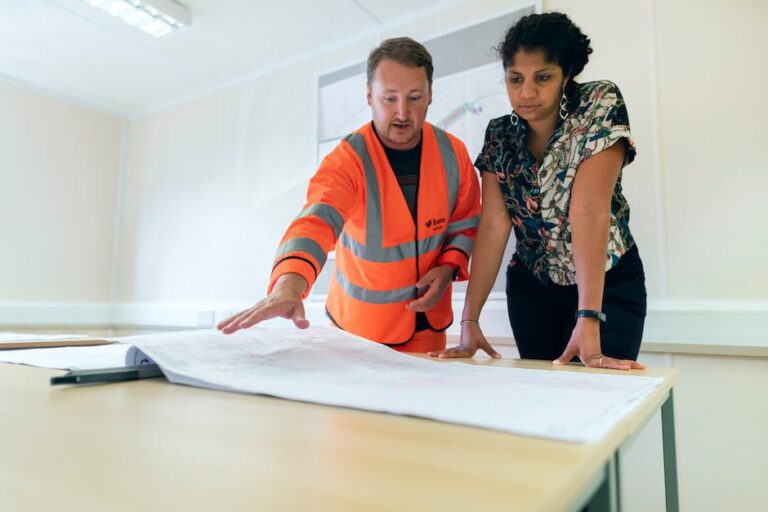The Role of Forgiveness in Personal Growth and Healing
Forgiveness is a powerful tool that can profoundly impact your personal growth and healing journey. It involves pardoning someone…

Forgiveness is a powerful tool that can profoundly impact your personal growth and healing journey. It involves pardoning someone for a wrong or offense and letting go of resentment, anger, or the desire for revenge. By releasing negative emotions and grudges, forgiveness contributes to improved mental and physical health. It also plays a significant role in repairing and strengthening relationships, fostering empathy and understanding towards others. Furthermore, forgiveness allows individuals to focus on the present and future, free from regrets and guilt. The process of forgiveness involves self-awareness, acknowledging emotions, reflecting on the situation, consciously deciding to forgive, and seeking support from others. Self-forgiveness is equally crucial, involving accepting and letting go of internal feelings of shame, doubt, and guilt. It helps manage long-term guilt, increase self-compassion, and improve overall well-being.
Key Takeaways:
- Forgiveness is essential for personal growth and healing.
- Letting go of resentment and negative emotions is crucial for improved mental and physical health.
- Forgiveness plays a key role in repairing and strengthening relationships.
- Self-forgiveness is equally vital, as it helps manage guilt and increases self-compassion.
- The process of forgiveness involves self-awareness, acknowledging emotions, and seeking support from others.
Understanding the Importance of Forgiveness in Improving Relationships
Forgiveness not only benefits yourself but also has a transformative effect on your relationships with others. When you forgive someone, you let go of resentment, anger, and the desire for revenge. This act of forgiveness can repair and strengthen damaged relationships, fostering empathy and understanding between you and the person you forgave. By forgiving, you create space for healing, growth, and a more harmonious connection.
Empathy is an essential component of forgiveness. When you forgive, you put yourself in the shoes of the person who hurt you, trying to understand their perspective. This empathetic attitude allows you to see beyond their actions and consider the circumstances that may have influenced their behavior. In turn, this understanding can lead to improved communication and a renewed sense of trust, helping to rebuild and strengthen your relationship.
“Forgiveness is not always easy, but it is necessary for personal growth and maintaining healthy relationships. When you let go of grudges and embrace forgiveness, you open up the possibility of healing and cultivating a deeper connection with others.”
Repairing relationships through forgiveness requires effort and commitment. It involves acknowledging your own emotions and expressing them in a constructive manner. Reflecting on the situation and consciously choosing to forgive enables you to break free from the cycle of resentment and move towards reconciliation. Seeking support from a trusted friend, family member, or therapist can also provide guidance and perspective during this healing process.
Letting Go and Moving Forward
Moving forward from a place of forgiveness means letting go of regrets and guilt. It involves focusing on the present and future, rather than dwelling on past offenses. By directing your energy towards personal growth and self-improvement, you create a positive environment that allows relationships to flourish. Remember, forgiveness is a choice, and it empowers you to shape your own narrative and create a future filled with love, understanding, and compassion.
| Benefits of Forgiveness in Relationships | Steps towards Self-Forgiveness |
|---|---|
|
|
In conclusion, forgiveness is a powerful tool for personal growth and healing, and it has a significant impact on your relationships. Through forgiveness, you can release negative emotions, repair damaged connections, and cultivate empathy and understanding. Remember that forgiveness is a journey that requires effort and commitment, but the rewards are profound. Embrace forgiveness, and watch as it transforms your relationships and helps you thrive in your personal development.
The Power of Self-Forgiveness in Personal Growth and Healing
Self-forgiveness is a vital step towards personal growth and healing, allowing you to release the burden of guilt and embrace self-compassion. It plays a crucial role in improving your emotional and physical well-being. When you hold onto feelings of guilt, shame, and doubt, it weighs you down, hindering your ability to move forward and experience true healing.
Managing long-term guilt can be challenging, but by acknowledging and accepting your emotions, you can begin the process of self-forgiveness. Tuning into your feelings allows you to confront them head-on, gaining a deeper understanding of their impact on your life. This self-awareness is key to breaking free from the cycle of guilt.
Addressing your inner critic is another essential aspect of self-forgiveness. That voice in your head that constantly reminds you of past mistakes can be relentless. Challenge those negative thoughts with self-compassion and remind yourself that everyone makes mistakes. Learning from these experiences, rather than dwelling on them, empowers you to grow and evolve.
Quotes for Inspiration
“Forgiveness is not an occasional act, it is a constant attitude.” – Martin Luther King Jr.
Quoting wise words can provide inspiration and encouragement on your journey towards self-forgiveness. Remember, forgiveness is a choice that requires effort and commitment. It isn’t about condoning or forgetting what has happened but rather about freeing yourself from the weight of resentment and finding peace within.
In conclusion, self-forgiveness is an essential tool for personal growth and healing. By letting go of guilt, embracing self-compassion, and learning from past experiences, you can pave the way for a brighter future. Remember, forgiveness is a journey, and it takes time and patience. But as you release the burden of guilt, you will discover newfound freedom and a profound sense of inner peace.
The Process of Forgiveness and Self-Forgiveness
Forgiveness and self-forgiveness are processes that involve deep reflection, conscious decision-making, and a commitment to personal growth. Acknowledging your emotions and the impact they have on your well-being is an essential first step. Take the time to tune into your feelings and understand the hurt or pain caused by the situation.
Addressing the inner critic is another crucial aspect of the forgiveness process. Our inner critic often replays negative thoughts and self-blame, preventing us from forgiving ourselves or others. Challenge these self-defeating beliefs by consciously reminding yourself of your worth and humanity. Replace self-criticism with self-compassion and understanding.
“Forgiveness is not about condoning the act; it is about freeing yourself from the burden of carrying it.”
Quotes can be powerful tools in the forgiveness journey. Reflecting on forgiveness quotes that resonate with you can provide inspiration and encourage you to let go of resentment and anger. Choose quotes that speak to your own experience and personal growth goals.
The importance of seeking support
Forgiveness can be a challenging task, and seeking support from friends, family, or a therapist can make the process more manageable. Sharing your feelings and experiences with someone you trust can offer guidance, perspective, and validation. They can help you navigate the emotions that arise during forgiveness and provide encouragement along the way.
As you move forward, it’s essential to learn from past experiences. Reflect on the lessons you’ve gained and how they can shape your future actions. By understanding the root causes of the offense or hurt, you can prevent similar situations from occurring, ultimately empowering yourself to make better choices and create healthier boundaries.
Planning for the future
In your journey towards forgiveness and self-forgiveness, it’s important to plan for the future. Clearly define your intentions and goals, both in terms of your relationship with the person you’re forgiving and your personal growth. Set boundaries and communicate your needs effectively to avoid repeating harmful patterns.
Remember, forgiveness is not a one-time event but an ongoing process. It requires continuous effort, self-reflection, and a commitment to personal growth. By embracing forgiveness and self-forgiveness, you can experience the transformative power of letting go, healing, and embracing a brighter future.
| Facts | Stats |
|---|---|
| Percentage of Americans who believe forgiveness is important for personal growth and healing | 78% |
| Average length of time it takes to forgive someone | 1-2 years |
| Percentage of individuals who find forgiveness therapy helpful | 82% |
Conclusion
In conclusion, forgiveness is a powerful catalyst for personal growth and healing, contributing to improved well-being and self-awareness. When you choose to forgive, you release the burden of resentment, anger, and the desire for revenge. By letting go of these negative emotions, you allow yourself to experience greater mental and physical health.
Forgiveness not only benefits you individually, but it also has a positive impact on your relationships. By forgiving others, you can repair and strengthen damaged connections. It fosters empathy and understanding, allowing you to build healthier and more meaningful relationships with those around you.
Furthermore, forgiveness helps you focus on the present and the future. It enables you to let go of regrets and guilt, freeing yourself from the weight of past mistakes. The process of forgiveness involves self-awareness, acknowledging your emotions, and reflecting on the situation. It requires a conscious decision to forgive and often benefits from seeking support from others.
Self-forgiveness is equally important in personal growth and healing. It involves accepting and letting go of internal feelings of shame, doubt, and guilt. By managing long-term guilt, increasing self-compassion, and improving your physical and emotional health, self-forgiveness enables you to move forward and learn from past experiences. Tuning into your emotions, addressing your inner critic, and planning how to move forward are key steps in the journey of self-forgiveness.
It is important to remember that forgiveness is a choice that requires conscious effort and commitment. By embracing forgiveness, you can experience profound personal transformation. Your emotional and physical well-being can improve, and you can cultivate a deeper sense of self-awareness. So, take the courageous step of forgiveness and allow it to guide you on your path to personal growth and healing.
FAQ
Q: What is forgiveness?
A: Forgiveness involves pardoning someone for a wrong or offense and letting go of resentment, anger, or the desire for revenge.
Q: Why is forgiveness important for personal growth and healing?
A: Forgiveness is important for improving mental and physical health, as negative emotions such as anger and resentment can have harmful effects on well-being. It also helps in improving relationships by repairing and strengthening them, and increasing empathy and understanding towards others. Forgiveness allows individuals to focus on the present and future, letting go of regrets and guilt.
Q: What is self-forgiveness?
A: Self-forgiveness involves accepting and letting go of internal feelings of shame, doubt, and guilt. It helps in managing long-term guilt, increasing self-compassion, and improving physical and emotional health.
Q: How can one practice forgiveness?
A: The process of forgiveness involves self-awareness, acknowledging emotions, reflecting on the situation, consciously deciding to forgive, and seeking support from others. It also involves addressing the inner critic, learning from past experiences, and planning how to move forward.
Q: Is forgiveness a choice?
A: Yes, forgiveness is a choice that requires conscious effort and commitment. It is a decision to let go of negative emotions and release resentment, ultimately leading to improved emotional and physical well-being.




